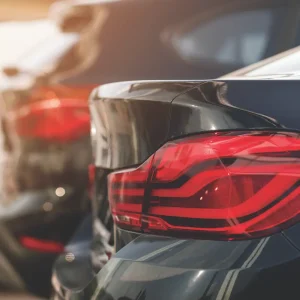Whether you’re planning on towing a trailer, caravan or horsebox, there are a number of rules and regulations that need to be followed.
Here, BusinessCar details everything you need to know about towing in the UK, as well as outlining crucial towing capacity information and providing a best-practice guide to help you tow safely.
How much can I tow?
It depends on when your licence was issued – ensure you read this section before you plan an impromptu caravan holiday or a weekend of tip runs:
- If you passed your test after January 2013, the maximum weight you will be able to tow with is 750kg, assuming the combined total weight of the car and what you want to tow doesn’t exceed 3,500kg.
- If you passed between 1 January 1997 and January 2013 you are able to drive a vehicle that weighs up to 3,500kg towing a trailer of up to 750kg. You can also tow a trailer over 750kg as long as the weight of the trailer is no more than the kerb weight of the towing vehicle, up to a combined weight of 3,500kg.
- If you passed your test before January 1997, you can drive and tow with the combined maximum weight of 8,250kg.
- If you want to tow more than 3,500kg and passed after January 1997, you’ll have to take a B+E test, which costs between £115-£140, although lessons may be required, which could considerably up the cost.

What can my car tow?
If you’re towing for business and you want to tow more than 3,500kg then (a) you will need the correct licence and (b) you will need to fit a tachograph, which is used to ensure those who drive for work do not exceed the maximum number of working hours allowed by law. Most car manufacturers will offer it as a cost option, and it records data about the activities of the driver and vehicle.
You must also make sure that what you want to tow doesn’t exceed the trailer’s maximum weight or the car’s maximum towing capacity.

For those who wish to tow a medium-sized caravan, you’re usually looking for vehicles that can tow 2,000kg or more, and fleet favourites such as the BMW 5-series executive saloon, Kia Sportage crossover and Skoda Superb saloon should manage this. The average caravan weighs somewhere in the region of 700kg-900kg unladen.
Want to tow a small, unbraked trailer? Vehicles like the Ford Fiesta and Citroen C3 hatchbacks should be able to cope.
If you need to tow a horsebox or caravan goods that’s up to 3,500kg, you’re looking at large 4X4s such as a Range Rover, Toyota Land Cruiser or BMW X6.
What towing equipment will I need? And do I need towing mirrors?
All towbars need to meet EU regulations and be designed for your car. Bars are generally fitted with labels specifying the car it is approved for as well as its approval number.
Towing mirrors may also need to be used – if the trailer is wider than the rear of the vehicle, mirrors will be required.
Trailers weighing more than 750kg will also need to be equipped with working brakes, and the same number plates must be displayed on the car and trailer.
Are there any towing laws I will need to adhere to?
Yep, there are a few towing laws you’ll need to follow – cars with trailers are permitted to be driven up to 60mph on motorways and dual-carriageways and 50mph on other types of road, such as A- and B-rated routes.
While towing, you are also not allowed to use the right-hand lane of a three-lane carriageway, too.
A failure to tow without proper mirrors can result in fines of up to £1,000 and three points on your licence.
Will my car’s mpg be affected by towing?
It’s likely to be hit, yes, as the vehicle’s engine will be working harder to drag non-aerodynamic shapes along behind it – especially uphill.
According to a 2013 test conducted by consumer magazine What Car?, a 2.0-litre diesel Volkswagen Golf’s mpg plummeted by 45% after having a caravan weighing 85% of the towing limit on its back, when compared with previous (non-caravan towing) ‘real-world’ figures obtained with the same car and driver while a 3.0-litre diesel Land Rover Discovery’s mpg fell by a third.
Tips for safe towing:
- Spread the load evenly – it is unsafe to put heavy things in the nose of the caravan, as it could make the rear of the van light and unpredictable to handle, not to mention that it could unevenly wear tyres. It is recommended that you put heavy loads over the axles and as low as possible for better weight distribution.
- If your satnav has a lorry or large vehicle option, enable it, as the default mode may send you down narrow and/or twisty roads.
- Before setting off, check all lights and indicators are working on the trailer.
- Don’t forget that the vehicle will be a lot longer than normal, so turning circles will be greatly increased.
- The same number plate must be displayed on the trailer and the car.
>> Do you have any tips for towing? Let us know on Twitter.





